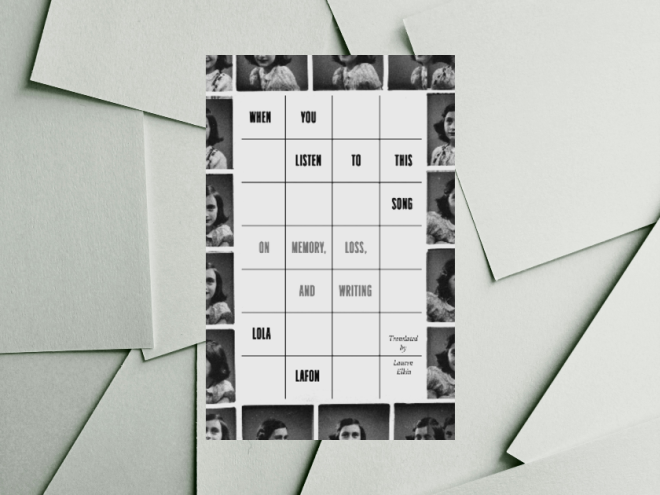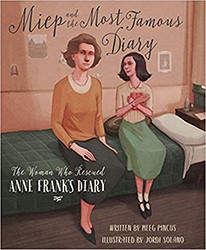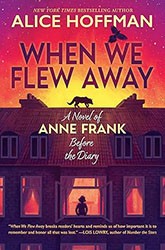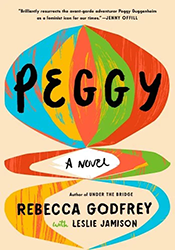When You Listen to This Song: On Memory, Loss, and Writing by Lola Lafon, translated from the French by Lauren Elkin, is the story of a night the writer spent in the Anne Frank House in Amsterdam. The book is one of a series published in France, Ma Nuit au Musée (My Night in the Museum), for which writers spent a night at a museum of their choice and wrote about the experience.
Lafon opts to spend her night at the Anne Frank House for deeply personal reasons. She’s Jewish and, growing up, she was inspired by Anne Frank’s The Diary of a Young Girl. Her mother was hidden as a child during the Second World War. Her grandparents, living in France at the time, endured many of the hardships that Anne and her family encountered in wartime Amsterdam. And yet, Lafon is not entirely sure why she chooses this museum and what Anne Frank means to her.
When You Listen to This Song reads like an extended personal essay as it describes the short time the author spends in the museum but also reviews essential information about Anne Frank’s life and diary. In addition, the reader learns more about Lafon’s own family history, and that history shaped her and her response to spending a night in the Frank family’s hidden Annex. She states that in both her and Anne’s lives, a “story that is missing entire paragraphs can’t be told. And the story that I understand is a narrative ridden with silences, which the third generation after the Shoah, that is to say my own, has inherited.” She continues: “Our family trees have been torn up, burned, carbonized.”
Lafon writes of these omissions and silences; of those who were lost, like Anne, her sister Margot, and her mother; of those who survived but cannot speak of their past; of forced immigration and lives lived in secret, with secrets. She wonders: what happened to Margot’s diary? She tells the reader about a childhood friend of hers, a Cambodian boy who returned home during the time of the Khmer Rouge and was never heard from again.
This is a gorgeous book, and the translation reads as flawless. It is hard to find a new approach to the Holocaust, Anne Frank, and to those who died and those who survived, but Lafon does so in this moving and original book.





